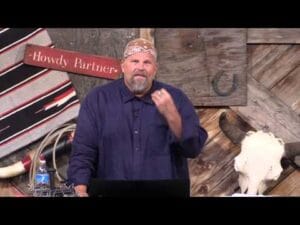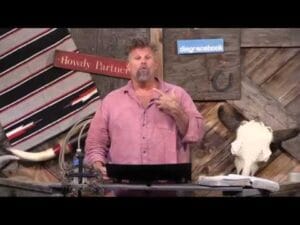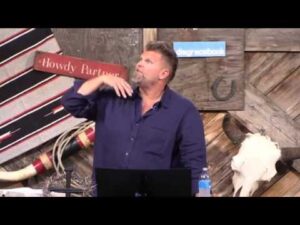Hebrews 11:23-29 Part 2 Bible Teaching
Moses chose faith over privilege, aligning with his Hebrew roots, prioritizing spiritual rewards over earthly pleasures, and leading the Israelites by divine guidance.
Moses chose faith over privilege, aligning with his Hebrew roots, prioritizing spiritual rewards over earthly pleasures, and leading the Israelites by divine guidance.

Shawn's teaching suggests hell is not eternal but a refining process, emphasizing God's love, justice, and free will, aligning with universal reconciliation themes.
Joseph's faith in burial plans, Moses' faith-driven choices, Israelites' growth under oppression, Moses' dual upbringing, civil disobedience, parallels with Jesus.

Shawn's "total reconciliationism" posits God's plan to reconcile all, differing from Universalism, Calvinism, and Arminianism. It distinguishes hell from the Lake of Fire, critiques eternal punishment translations, and suggests finite posthumous judgment, emphasizing eventual reconciliation through Christ.

Shawn's teaching explores Jesus' statement in John 12:32, balancing God's omniscience, omnipotence, and human free will, critiquing Calvinism, and rejecting Open Theism.
Hebrews 11 highlights faith through biblical figures like Abel, Enoch, Noah, Abraham, Isaac, Jacob, and Joseph. Key themes: faith, blessings, deceit, inheritance, transformation.
Believers should see themselves as temporary residents on Earth, seeking a heavenly homeland, prioritizing faith and God's promises over earthly ties, like Abraham.

Shawn's teaching explores John 12:32-33, questioning salvation's scope, free will, and predestination. He challenges traditional views on heaven, hell, and proposes universal salvation.
Shawn's teaching emphasizes faith as bold action, letting go of the past, and trusting God's guidance, akin to Abraham's journey, prioritizing spiritual growth over worldly ties.

Shawn's teaching focuses on self-denial, daily spiritual growth, and following Jesus' example to glorify God, emphasizing the defeat of Satan and the importance of living a Spirit-filled life.
Shawn's teaching highlights Abraham's faith journey, chosen by God for his heart, not lineage. Emphasizes his nomadic life, challenges, and unwavering trust in God's promises.

Shawn's teaching emphasizes personal interpretation of biblical teachings, focusing on Jesus as God in flesh, self-denial for eternal life, and aligning with God's will over self-love.
Shawn's teaching highlights faith as action on God's promises, critiques global flood views, supports a local flood in Mesopotamia, and warns against rigid dogmatism.

Shawn's teaching highlights individual faith responsibility, communal worship, Jesus' triumphal entry, prophecy fulfillment, Hebraic exaggeration caution, and spiritual growth through sacrifice.

Shawn's teaching deconstructs communal worship, focusing on subjective Christian experience, money's challenges, and prioritizing devotion to God, using Judas' story as a key example.
Shawn's teaching deconstructs "doing church," focusing on personal faith, Noah's unwavering belief, and critical examination of scripture, emphasizing faith with reason.

Mary anoints Jesus with costly ointment, symbolizing devotion and faith. Contrasts Judas' selfishness. Emphasizes brokenness, humility, and love over perfection.

Faith is key in Christianity, exemplified by Enoch's divine removal due to his faith. Jude warns of heretics, using Enoch's prophecy. Faith requires belief in God and diligent seeking.

The teaching highlights Lazarus's resurrection as a symbol of spiritual rebirth, contrasts human responses to Jesus's miracles, explores Sanhedrin's fears, Caiaphas's prophecy, and Jesus's adherence to Jewish law.

Faith is central, creating the universe by God's word. Abel's offering was accepted due to faith, unlike Cain's. Faith is key in spiritual understanding and worship.